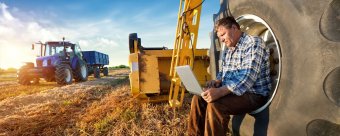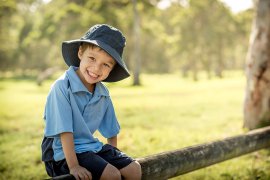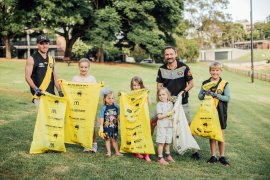-
Featured Items
-
Featured Resources
 Funding & Grants
Don't miss out on funding opportunities. Stay informed with our up to date online listings and email notifications.
Read More
Funding & Grants
Don't miss out on funding opportunities. Stay informed with our up to date online listings and email notifications.
Read More
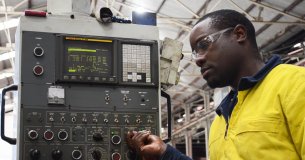 Skilled Migration
Our services help both applicants and employers, to learn more, develop plans, submit applications, and settle in.
Read More
Skilled Migration
Our services help both applicants and employers, to learn more, develop plans, submit applications, and settle in.
Read More
 Research and Analysis
Good research and analysis makes the case. How can our resources and services help your project or application?
Read More
Research and Analysis
Good research and analysis makes the case. How can our resources and services help your project or application?
Read More
 Information & Data Resources
With resources like REMPLAN, Regional Knowledge Base, and decades of data, discover how we can help your project.
Read More
Information & Data Resources
With resources like REMPLAN, Regional Knowledge Base, and decades of data, discover how we can help your project.
Read More
-
Stay InformedSubscribe to one or more of our regular email subscriptions, to be kept up to date on news and funding opportunities for the region
-
-
Our Region
- Our Region
- Regional Plan
- Regional Data
- Current Regional Issues
- Population Migration Analysis for 2016-21
- Job Vacancies Continue at All-Time High
- National Debt - What it Means for Our Economy?
- The True Value of Home Solar
- The Economic Impacts of Local Government Amalgamations
- State of the Regions Report 2014-15
- Antifragility - A different take on regional economic development
- Biohubs - Collaborative Waste Management
- Attracting New Residents
- Socio-Economic Impacts of the Murray Darling Basin Plan
- Murray Darling Basin Water Recovery
- Growing Businesses
- The Northern Inland Economy
- Geographical Overview
- Major Industry Sections
- Our Services
- Grants and Funding
-
Skilled Migration
- Skilled Migration
- Skilled Employer Sponsored Regional Visa
- Skilled Work Regional Visa (subclass 491)
- Temporary Seasonal Workers
- Designated Area Migration Agreement (DAMA)
- Helpful Information for Visa Holders
- Information for Employers
- Case Studies
- Payment Details
- Advice & Further Information
- Contact Details
- News & Events
-
Our Projects
- Our Projects
- Current Projects
- The Welcome Experience
- Come On Inland
- Wool Works - Wool Training Schools
- Skilled Migration
- Metal Works - Welding and Fabrication Schools
- Stories of Resilience
- Alt Brothers Beekeeping - Glen Innes
- Carelle's Toy Store - Glen Innes
- Greenhill Orchards - Arding
- Gwydir Meats - Warialda
- Kaputar Motors - Narrabri
- Moonbi General Store - Moonbi
- Sandstock - Tingha
- Sherelle Fashions - Tenterfield
- Sleepy Merino - Inverell
- Tenterfield Chamber of Toursim, Industry and Business - Tenterfeild
- The Welders Dog - Armidale
- Walcha Veterinary Supplies - Walcha
- AGCAP - Agribusiness Careers & Professions
- Northern Inland Regional Investment Profile
- Past Projects
- Digital Economy Strategy
- Business Growth Project
- Go Digital
- How to Start an Online Business
- Create Your Website Using Squarespace
- How to Edit Your Squarespace Site - Part 1
- How to Edit Your Squarespace Site Part 2
- Add a Shop to Your Squarespace Site
- Start a Blog and Find out What Customers are Searching
- 14 Tips For a Better Blog Post
- Which Social Media Platforms are Best for Your Business
- How to Use Facebook Effectively For Your Business – Part 1
- How to Use Facebook Effectively For Your Business – Part 2
- Instagram Tips for Business
- Catching Up, More Instagram & Dealing with Haters
- Getting Started with Twitter for Business
- Social Media Scheduling Tools
- How to Start an Etsy Shop – Part 1 – Research
- How to Start an Etsy Shop – Part 2 – Signup
- Online Security for Your Business
- Product Photography and Website Images: Your Guide
- 5 Tips to Improve your Productivity in your Business
- Best Online Business Resources
- How to Improve Your Communication Skills and Win More Clients
- NBN Coordinator
- Putting Power Back in the Regions
- Road Freight Study
- Town Audit Benchmarks
- Food and Wine
- Youth Survey
- Digital TV Switchover Assistance
- Northern Inland Transport Guide
- Live.Train.Work
- Northern Inland Innovation Awards
- Northern Inland Innovation Awards - 2017
- Northern Inland Innovation Awards - 2016
- Northern Inland Innovation Awards - 2015
- Northern Inland Innovation Awards - 2014
- Northern Inland Innovation Awards - 2013
- Northern Inland Innovation Awards - 2012
- Norther Inland Innovation Awards - 2011
- Prime Super Northern Inland Innovation Awards - 2010
- Prime Super Northern Inland Innovation Awards - 2009
- Northern Inland Innovation Awards - 2007
- Northern Lights Project
- NBN Smart Home
- Murray Darling Basin
- Moree Plains Business Workshops
- Namoi Investment Prospectus
- Industrial Land
- Bioenergy and Local Electricity Retailing
- Northern Inland Business Energy Assessment
- Skills for the Future
- Impacts of COVID-19 on Businesses
- Past Projects of NIRDB
- Aboriginal Employment and Enterprise in the Gunnedah Region
- Art as an Industry
- Aviation Survey
- Farm Forestry - Northern Inland Forestry Investment Group
- New England North West Film Strategy
- Northern Inland Excellence in Business Awards
- Food and Wine 2003 - 2008
- Prime Super Northern Inland Innovation Awards 2009
- Regional Business Networking Program
- Regional Leadership Course 2008
- Viticulture Strategy 2002-2003
- About Us
- Contact Us
- Other Resources
- Privacy and Legal
- Search
Back to Newsletters

February 2022 Newsletter
Monday 28th of February 2022
In this Issue
- Welcome from the Chair
- Report Card for Regional Telecommunications
- Support for Regional Youth Projects
- March Round of 491 ROI’s Open Tomorrow
- Help to Find Suitable Childcare Services
- Help Our Environment Recover From COVID-19
- Featured Grants and Funding Opportunities
Welcome from the Chair

Dear Northern Inlanders,
Welcome to the latest edition of our newsletter. As you read this, you will be sitting in front of your computer or on a mobile device. Increasingly we are utilising the potential of digital technology and connectivity in our personal lives and our businesses. Yet many regional residents struggle to get useable internet connections.
Our region mustn’t get left behind due to inadequate telecommunications infrastructure and services, particularly those who rely on wireless and satellite technology. I am pleased to see that this was highlighted in the latest report from the Regional Telecommunications Independent Review Committee that was tabled to Parliament this month.
Our region’s youth have been doing it tough as they have faced challenges from not only COVID-19 but also natural disasters. The Children and Young People Wellbeing Recovery Initiative will provide much-needed funding for projects in regional areas to support our youth. There are three grant programs under the initiative, and all LGAs in the Northern Inland are eligible. Applications are open on an ongoing basis with funding caps per LGA, and further details are available below.
With the reduction of restrictions, Clean Up Australia Day can go ahead this Sunday. This year is more important than ever, with the environment feeling the impact of COVID-19, which has created an increase in single-use plastics and face masks that are now littering our community areas and waterways. It is an excellent opportunity to all pitch in, do something positive for our environment, meet new people and be a positive part of our communities.
Regards,
Russell Stewart
Chair
Report Card for Regional Telecommunications
Digital connectivity is crucial to our regional economies' future growth and resilience. Every three years, the Regional Telecommunications Independent Review Committee reports the adequacy of telecommunications services in regional, rural and remote parts of Australia. Following community consultation with record levels of submissions, the latest ‘report card’ titled A Step Change in Demand was tabled in Parliament this month. It highlights the ever-increasing demand for connectivity in the regions and the need for telecommunications to be accessible, reliable, and of good quality. The report will be critical in setting the future priorities and investment in regional telecommunications.
The demand for connectivity, particularly for data, has increased due to the number of people working and studying from home and as digital content plays an ever-increasing role in our everyday lives. As more Government and commercial services are delivered online, and the range of digital tools for work, study and leisure continues to grow, the demand for mobile and broadband services by individuals and businesses alike is also increasing. The report considers that this step change in data demand warrants a step change in the policies and programs that support the delivery of telecommunications services in regional areas.
As participation in the digital economy can only occur where infrastructure and individuals’ skills allow it, the report highlights the importance of not compounding already existing digital divides of users of fixed-line services compared to those using fixed wireless and satellite networks.
“Factors such as COVID-19, a growing digital economy and the ongoing threat of natural disasters have underlined the importance of access to high quality telecommunication services,” said Minister for Regional Communications, Senator the Hon Bridget McKenzie. “The findings and recommendations are based on extensive community engagement, including a record number of submissions and strong community feedback in the 24 virtual consultations. This feedback is invaluable in developing evidence-based solutions for those living, working and travelling in our regions.”
“Access to a good quality, reliable, modern telecommunications is a key issue. Robust digital connectivity is vital, keeping connected to families, ensuring local businesses can access and adequately service local and international markets, enabling remote working, keeping people safe – everyday – and in disasters – and providing access to online education and telehealth and government services.”
In summary, the report’s 12 recommendations are:
- Adopt a longer-term strategic approach to regional digital infrastructure and skills
- Increase Government investment in regional connectivity
- Implement a regional telecommunications resilience fund
- Trial emerging connectivity technologies
- Build connectivity literacy and digital capability among regional users
- Enhance NBN Co’s regional fixed wireless and Sky Muster services
- Implement and enforce new performance and reliability standards for wholesale and retail services
- Continue but reform existing universal services for the future
- Improve consumer information about mobile services including coverage and performance
- Encourage shared network access and innovative funding for mobile in regional areas
- Focus on the digital needs of Indigenous communities
- Improve affordability for vulnerable groups in regional areas
The full 2021 Regional Telecommunications Review - A step change in demand report, which includes full details of the findings and recommendations, can be accessed from the Department of Infrastructure, Transport, Regional Development and Communications website.
Support for Regional Youth Projects
The NSW Government is providing $10.3 million through the Children and Young People Wellbeing Recovery Initiative to help regional youth recover from the impacts of natural disasters and COVID-19. Through three grant programs, it will provide grants to deliver projects that support recovery, boost resilience and support mental health and wellbeing for youth aged up to 24 in regional areas.
“The past few years have been difficult for many in our regions, but particularly regional young people who have had to contend with the changes that come with growing up in the midst of bushfires, floods, a mouse plague and COVID-19,” said Minister for Regional Youth Ben Franklin. “These grants will support projects that build resilience of young people for future adverse events and help regional youth bounce back stronger and be more connected with their peers and communities than ever before.”
Three are three grant programs under the initiative, and all Northern Inland LGAs are eligible.
Large and Small Grant Programs
The objective of these programs is to support the wellbeing of children and young people living in regional NSW and promote social inclusion and community connections. This program is funded by the NSW Government’s COVID-19 Economic Recovery Strategy.
Applicants must be one of the following:
- local councils
- community groups
- not-for-profit organisations
- Local Aboriginal Land Council
- schools
- neighbourhood centres.
Eligible projects can include, but not limited to:
- community events and social activities
- sport and recreational programs
- youth mental health training
- cultural and community connection programs
- healing initiatives to support Aboriginal children, vulnerable children and young people affected by adverse events
- peer support programs, mentoring and training for children and young people
- digital communications and resources
Small Grants are between $500 and $10,000, with a total pool of $1.5 million. Applications are being received on an ongoing basis until the 31st of March 2023, or until funds are expended. A maximum of $50,000 will be allocated to each LGA.
Up to $50,000 is available under the Large Grants program, with a total pool of $5.2 million. Applications are being received until the 31st of December 2022, or until funds are expended. A maximum of $100,000 will be allocated to each LGA.
Large Grants for Storm and Flood Impacted Regions
This funding supports programs, events and resources to help children and youth living in storm and flood impacted regions to recover, build resilience, improve wellbeing and strengthen community connections. The NSW and Commonwealth Governments have made equal contributions under the Disaster Recovery Funding Arrangements to make a $3.6 million available.
LGAs included in the Natural Disaster Declarations, with the Australian Government Reference Number (AGRN) 954 and 960, are eligible, which is all Northern Inland LGAs.
Eligible applicants include:
- local Councils
- joint Organisation of Councils
- schools
- not-for-profit organisations
- research or academic organisations
- Local Aboriginal Land Councils
Eligible projects may include, but not limited to:
- community events and social activities
- sport and recreational programs
- youth mental health training
- cultural and community connection programs
- healing initiatives to support Aboriginal children, vulnerable children and young people affected by adverse events
- peer support programs, mentoring and training for children and young people
- digital communications and resources
- partnership programs, activities with schools, early childhood and NGOs.
The Large Grants for Storm and Flood Impacted Regions are valued between $10,000 and $50,000. Applications are being accepted on an ongoing basis until the 31st of December 2022, or until funds are expended. A maximum of $100,000 will be allocated to each LGA.
March Round of 491 ROI’s Open Tomorrow
The NSW Government will be running its final scheduled round of Registrations of Interest (ROIs) for 491 Visa nomination for the 2021-22 financial year in March. Interested applicants must receive an invitation to apply from the NSW Government through this process before submitting a full application for nomination.
This process for an invitation to apply is very competitive, and if you have not received an invitation to apply from a previous round, you can register your interest again in future rounds. Submissions for an ROI from prior rounds are not carried forward, a new ROI is required for each window. Ensure your ROI and Expression of Interest with the Australian Government’s Skill Select system are updated, with you latest job details, for example.
Please keep in mind that the NSW Government determines invitations to apply, not RDAs, and we cannot influence their decisions for this invitation process. We can only respond to enquiries about this first step in the 491 Visa process that are general in nature. Further information about how to register your interest with the NSW Government and the online form is available on the NSW Government’s website. We also recommend reading through their frequently asked questions about the ROI process for 190 and 491 Visas. Only use the online form in the month in which an invitation round is being conducted, even if the form is available. Any ROI submissions received outside of March will not be considered by the NSW Government.
We have an updated Occupation List for applications to our region under streams 2 and 3. This has included the addition and removal of some occupations on our list. Keep in mind that these list changes do not affect applicants under stream 1, as the combined occupation list by the NSW Government relates to this stream. These changes also do not affect anyone who has already submitted an application to us.
Although we enjoy meeting Skilled Migrants who move to our region, our office is currently closed to visitors for the safety of our staff and their families due to the current spread of COVID. While we appreciate that it can sometimes feel easier to talk face-to-face, we cannot make exceptions, and we provide the same assistance over the phone or email. Our Skilled Migration Officer, Gary Fry, will be available to assist where possible for those looking to apply to the Northern Inland by phone on 6771 0700 or by email at migration@rdani.org.au
Help to Find Suitable Childcare Services
The Australian Government has launched a new website, StartingBlocks.gov.au, to help families to find childcare. The new website provides a central location for families to research local childcare service locations, view current vacancies, compare costs, and check official quality ratings, including safety.
In addition to the removal of the annual cap in December, 250,000 families with more than one child aged under six who will get a higher subsidy from the 7th of March. The website includes a new tool which allows users to enter their details and get an estimate of their out-of-pocket costs.
CEO of the Australian Children’s Education and Care Quality Authority (ACECQA), Gabrielle Sinclair, said children deserve the best quality early education and care, and StartingBlocks is an easy way to navigate Australia’s more than 16,500 approved early childhood education and care services. “As the national authority, ACECQA is pleased to work with the Australian Government to reduce complexity for parents by enhancing StartingBlocks as the government-approved website to find and compare quality ratings, vacancies, fees and service inclusions in one convenient location.”
StartingBlocks replaces the existing Child Care Finder website and reduces the burden on approved providers of early education and care services, who no longer need to provide their fee and vacancy data separately to Child Care Finder.
Help Our Environment Recover From COVID-19
Clean Up Australia Day is our largest community-based environmental event. In 2020, over 683,000 volunteers collected over 17,000 ute loads of rubbish from our environment. Now that public health orders have been reduced, this Sunday the 6th of March provides a chance to decrease the effects of COVID-19 on our environment.
Changed habits have fuelled a significant increase in household waste. The last two years have seen significant increases in single-use plastics, alongside unprecedented numbers of face masks, takeaway coffee cups and food packaging littering our environment.
“The environment is still experiencing the impact of the pandemic,” said Clean Up Australia Chairman, Pip Kiernan “Our habits changed during COVID and most of these haven’t been kind on the environment. Surges in online shopping, meal delivery services and the use of disposable face masks and coffee cups, mean the environment is feeling the after-effects of the pandemic in ways not seen before,” added Ms Kiernan.
“Clean Up Australia Day is the opportunity to do some good – to roll up our sleeves, get out there and take action.” Ms Kiernan said. “Signing up means you’re making a pledge to protect Australia’s environment. Together, we can make a meaningful, long-lasting difference to the parks, beaches, rivers and pathways near us.”
In 2020, it is estimated that 3.4 billion disposable masks were thrown out every day. These masks are made using a variety of plastics, including polypropylene, polyethylene and vinyl, making them not recyclable via kerbside recycling or with soft plastics. In addition, over the past two years, there have been disturbing cases of wildlife found tangled up in discarded single-use face masks.
Clean Up Australia is keen to unmask the extent of the litter problem caused by disposable face masks. Clean Up Australia Day participants can also join in a citizen science project by reporting the number of masks they collect online to add to a national database.
There are several community-based clean up sites around our region, and it is free to participate. Registrations are open through the Clean Up Australia Website.
Featured Grants and Funding Opportunities
Below are some featured grants and funding opportunities from the multitude of open grants listed in our Grants and Funding Opportunities Database on our website. Our website is updated weekly with new listings and updates and all are applicable to our region, so it is a great resource if you are looking for funding for a specific project.
You can also sign up to our free Business and Infrastructure Funding Opportunities and the Community Grants and Award Programs newsletters through the simple form located in the footer of our website, www.rdani.org.au, to receive monthly summaries of current grants.
Festivals Australia Round 14
Closes: 18th of March 2022
Value: Up to $40,000 on average
Run By: Australian Government Department of Infrastructure, Transport, Regional Development and Communications
Festivals Australia enables artists and organisations to shape Australia’s cultural landscape, increase cultural diversity and inspire, educate and entertain communities across Australia.
This progam provides funding to support individual art projects at festivals or significant one-off community events, such as a town celebration or opening of a new community resource.
The Program seeks to celebrate the intrinsic capacity of the arts to engage, inspire and make meaning for all Australians, while supporting the celebration of place and promoting a sense of community identity.
The Festivals Australia objectives are to:
- provide access to a diverse range of high-quality, innovative arts projects that grow audiences at festivals across regional and remote Australia;
- support partnerships and collaboration across the arts sector; and
- encourage community participation in arts projects at regional and remote festivals.
Woolworths Junior Landcare Grants - 2022
Closes: 18th of March 2022 - 5:00 pm
Value: Up to $1,000
Run By: Woolworths
Primary schools and early learning centres are encouraged to apply for a Woolworths Junior Landcare Grant. With 1,000 grants on offer this is a great opportunity to secure funding for your school’s environmental project.
These grants aim to inspire kids from across the country to get hands-on with projects that focus on sustainable food production, improving waste management practices or enhancing native habitats.
The grant can be used for:
- a habitat restoration project
- planting a bush tucker garden
- planting a vegetable garden
- running a composting or recycling project
Social Cohesion Grants for Local Government
Closes: 11th of March 2022 - 5:00 pm
Value: $50,000 to $100,000
Run By: NSW Department of Communities and Justice
This grant seeks to identify social cohesion opportunities and challenges in local communities and support local councils and their community partners to deliver innovative solutions.
Local councils are well placed to design and implement initiatives that build stronger, more resilient, and cohesive communities. Councils can embed principles of social cohesion across various areas – from strategy and planning to civic engagement, tracking and monitoring.
The NSW COVID-19 pandemic has added to factors affecting social cohesion at the local level, highlighting the importance of locally led responses to disruptions caused by the pandemic. For this reason, the NSW Government is administering a local government social cohesion grants program and is encouraging applications from all local councils across NSW.
The NSW Social Cohesion Grants for Local Government program aims to:
- Build resilience of local community leaders and groups
- Track and measure social cohesion within the local area
- Encourage civic engagement and participation
- Enhance community cohesion and cultural inclusion
- Enhance places and spaces that reflect diverse local character, stories and needs
- Build partnerships and networks to strengthen social cohesion within the community
ANZ Community Foundation
Closes: 17th of March 2022
Value: Up to $30,000
Run By: ANZ
The ANZ Foundation supports small to medium-sized projects run by charitable organisations that offer a direct and tangible benefit to local communities. Where structured volunteering by ANZ staff members would add value to the funded project, ANZ is keen to facilitate this type of in-kind support.
They are looking to support community projects that relate to one of the following priority areas:
- Improving financial wellbeing, particularly for under-represented and disadvantaged people in our community, including initiatives that improve economic participation for example through building financial literacy and developing vocational skills and providing access to meaningful work
- Improving environmental sustainability through initiatives that restore and conserve the natural environment or which contribute to water stewardship, lower carbon emissions1, and waste minimisation
- Improving housing access through initiatives and programs that support those experiencing or at risk of homelessness or that provide supports for people living with a disability
- Other community projects that assist local communities to thrive
Related Pages







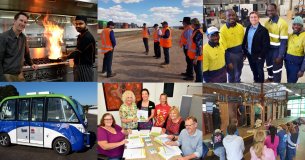 Latest News
Latest News
